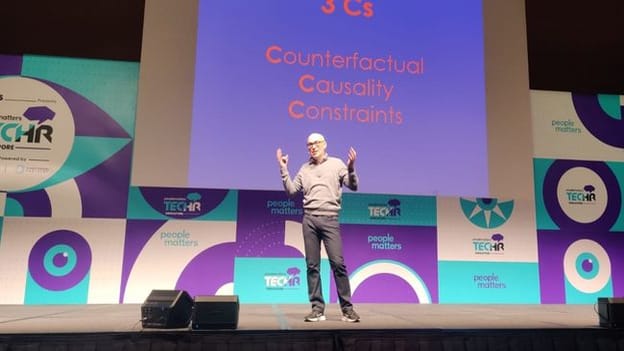Machines are never going to think like humans: Francis de Vericourt

Organisations have been increasing automation of their business processes using several tools and AI. However, it is always crucial to strike that right balance between human expertise and technology for the very fact that machines can be creative but only with data, while human brains have the ability to function themselves on the basis of mental models. Addressing a session at the People Matters TechHR Singapore Conference 2022, Francis de Vericourt said, “Machines are not going to ever think like humans because machines depend on the data.”
Francis, at the time, is Best Selling Author, Professor of Management Science and the Director of the Center for Decisions, Models and Data at ESMT Berlin.
At the session titled, ‘Mental Models For 2022 And Beyond: Advancing Amidst Rapid Tech Innovations And Turmoil’ he noted that with increasing the focus to adopt technology, many organisations are subconsciously ignoring the superpower called ‘brains’ which alone has the ability to think and create further technologies.
According to Francis, “We as human beings have the ability to change perspective because we think on the basis of abstract mental models which enable us to make sense of the world.”
He further added, “What is very important to us, especially today, is that what makes us human decision makers fundamentally different from machines and technology.”
The extent to which machines can help is only till prediction of things on the basis of the data put into them by human beings. In today’s world of work, it is important to recognise the fact that it is the human brain which has the ability to innovate. With the onset of the pandemic, when organisations had to undergo transformation into a remote model, the agility shown by the human brains saved the businesses. Though technology and digitisation had to be adopted globally for remote teams to work in flow, the businesses would stop without the agility and resilience of the employees.
“The ability to extrapolate well beyond the situation you are in is called counterfactual thinking,” said Francis. He furthered, “And the accuracy of your contact factor thinking depends on the mental models you hold in your head to do these extrapolations.”
"Your ability to solve your problems today depends on your ability to properly represent and frame your problems today." Francis said concluding the session.
















